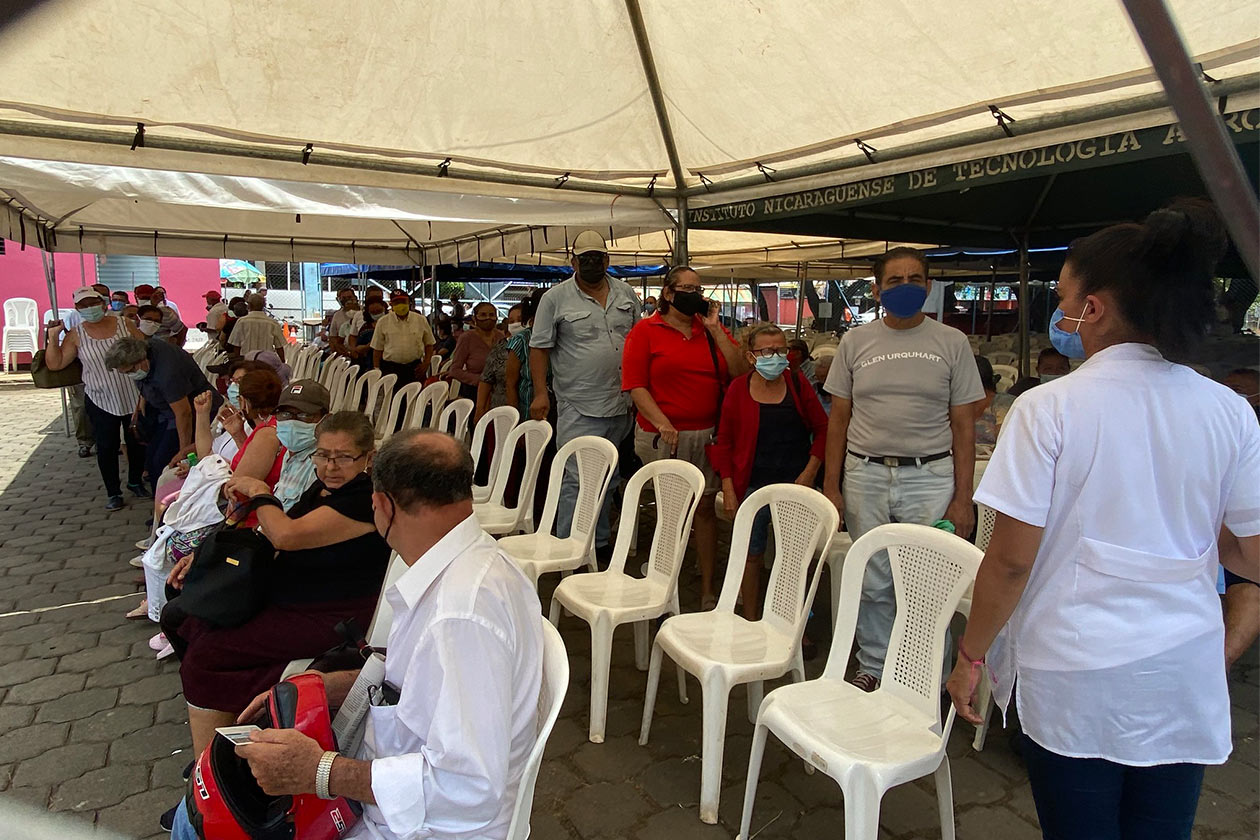Nicaragua increased the number of patients with chronic diseases by 64% in the last two and a half years. This increase is influenced by the pandemic, the prevalence of bad habits and the lack of disease prevention policies by health authorities, according to health experts.
“What we have observed is that patients who were not diabetic or hypertensive have become patients with chronic diseases, so the pandemic has effectively affected the growing trend of chronic diseases,” says epidemiologist Leonel Argüello.
In total, the country went from 422,982 chronic patients in 2019 to 694,569 as of August 2022. Of these, 37% are patients with hypertension. This condition doubled in just two and a half years. The same thing happened with diabetes, which went from 84,846 to 132,912.
The department that reports the greatest increase in chronic patients is Managua. According to the Silais report as of 2019, there was an accumulated 75,963 chronic patients, however, now the figure is almost four times higher: 271,979. The second department with the highest increase is Rivas, which reports 89% more Nicaraguans with these conditions, followed by Boaco and Carazo, which also had an increase. greater than 80%.
Hypertension and diabetes were at risk for covid-19. According to weekly reports from the Ministry of Health (Minsa), the majority of patients who were infected with the coronavirus suffer from these diseases. However, the increase in chronic diseases is also influenced by the policy carried out by the Minsa of hiding infections and deaths from the pandemic, as verified with studies of excess mortality.
A magazine study Circulation from the American Heart Associationbased on cases in the United States, concluded that the increase in hypertension was related to an increase in bad habits during quarantine, and a decrease in exercise.
Heart patients tripled
“Many of the covid diagnoses were added to the diagnoses of chronic diseases, so there was an increase in diseases such as hypertension, heart disease, diabetes and other respiratory diseases: atypical pneumonia, but since they did not fall within the presumptive diagnosis of covid-19, then There are pathologies or hospital discharges —also deaths— that were related to covid, were added to chronic diseases,” says a doctor from a private hospital in Managua.
The chronic illness that suffered the greatest increase, according to Minsa data analyzed by CONFIDENTIALThey are heart patients. In 2019, this population was 15,908 the following year it increased to 44,962, almost three times more. In 2021, the population had a slight decrease of 3,236. In 2022, it rose to 44,037.
This drop is explained by the increase in deaths due to heart attacks, according to studies of excess mortality, this was the main cause used by the Minsa to hide those who died from covid-19 during the first two years of the pandemic, in addition to diabetes, pneumonia and hypertension.
Chronic patients with bronchial asthma also increased. In the two years prior to the pandemic, there were between 26,000 and 27,000 Nicaraguans with this disease. However, now patients with this disease exceed 52,831.
Patients with chronic kidney disease, another group vulnerable to covid-19, also increased. In 2019 there was barely a record of 13,703 chronic patients with this condition; however, now the total number is 24,992.
Minsa executes care or prevention model
Argüello points out that clinical or medical care is prioritized in the country and not a comprehensive approach to prevent chronic diseases, since many of these are due to the consumption of junk food, sedentary lifestyle.
“There is no comprehensive approach or stewardship of the Ministry of Health and, therefore, the cities themselves are contributing to increasing the number of patients with chronic diseases, because there are no campaigns to reduce smoking, there are no campaigns that people exercise more, there is no health education on the measures you have to take to prevent it, there are no campaigns against the obesity epidemic that we have in our country”, says the doctor.
Psychiatric cases also increased after the pandemic. In the three years prior to 2022, the number of patients was between 6,700 and 8,700. However, in the first year of covid 14,594, in the second it exceeded 18,000 cases.
The latest update of the Health Map reveals that by 2022 the chronic population with psychiatric illnesses is 20,554, which represents 133% more than what was reported in 2019.
“The increase in psychiatric and cardiac problems is strongly associated with the level of stress in the population. Stress and trauma among Nicaraguans have increased significantly in recent years,” says epidemiologist Álvaro Ramírez.








